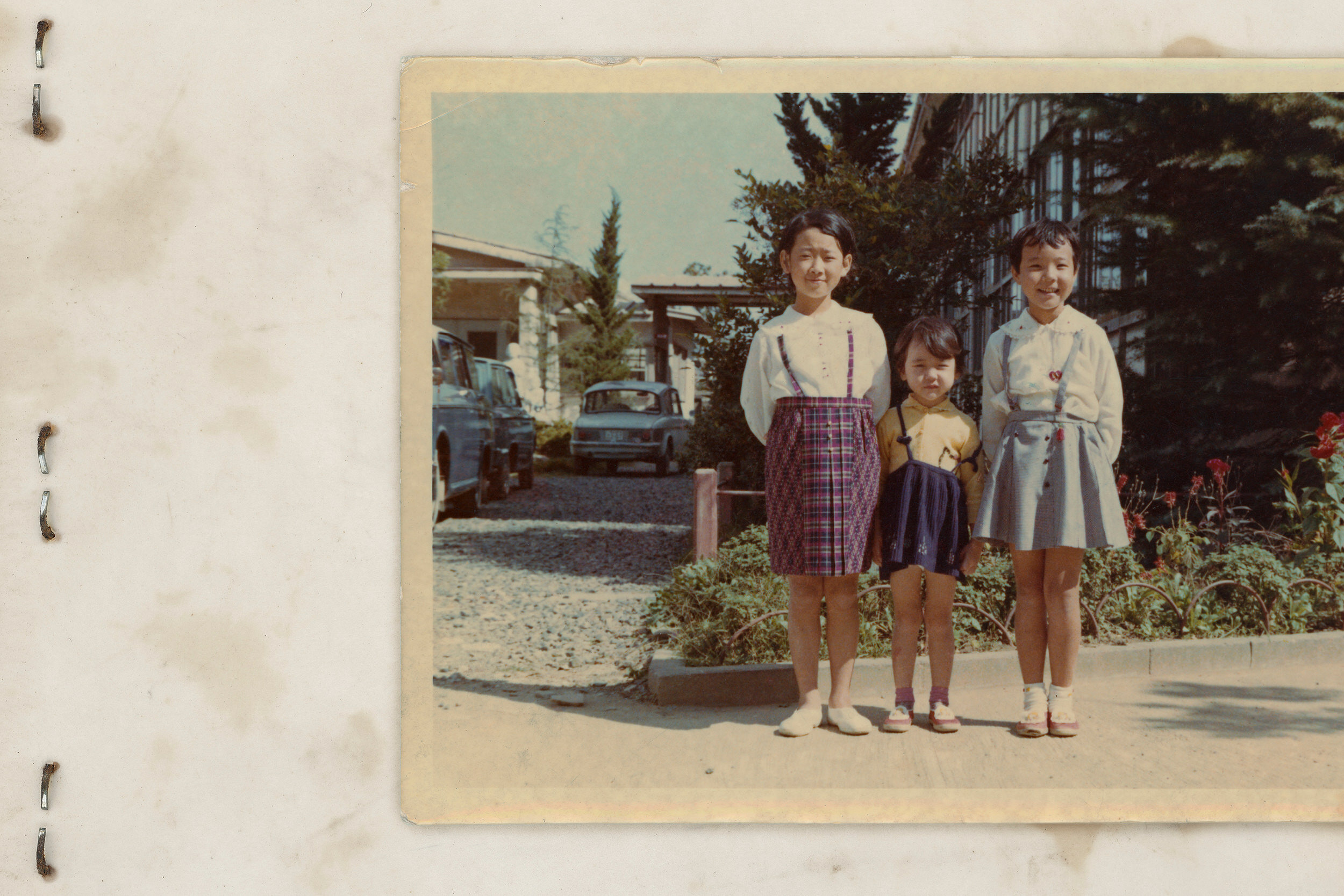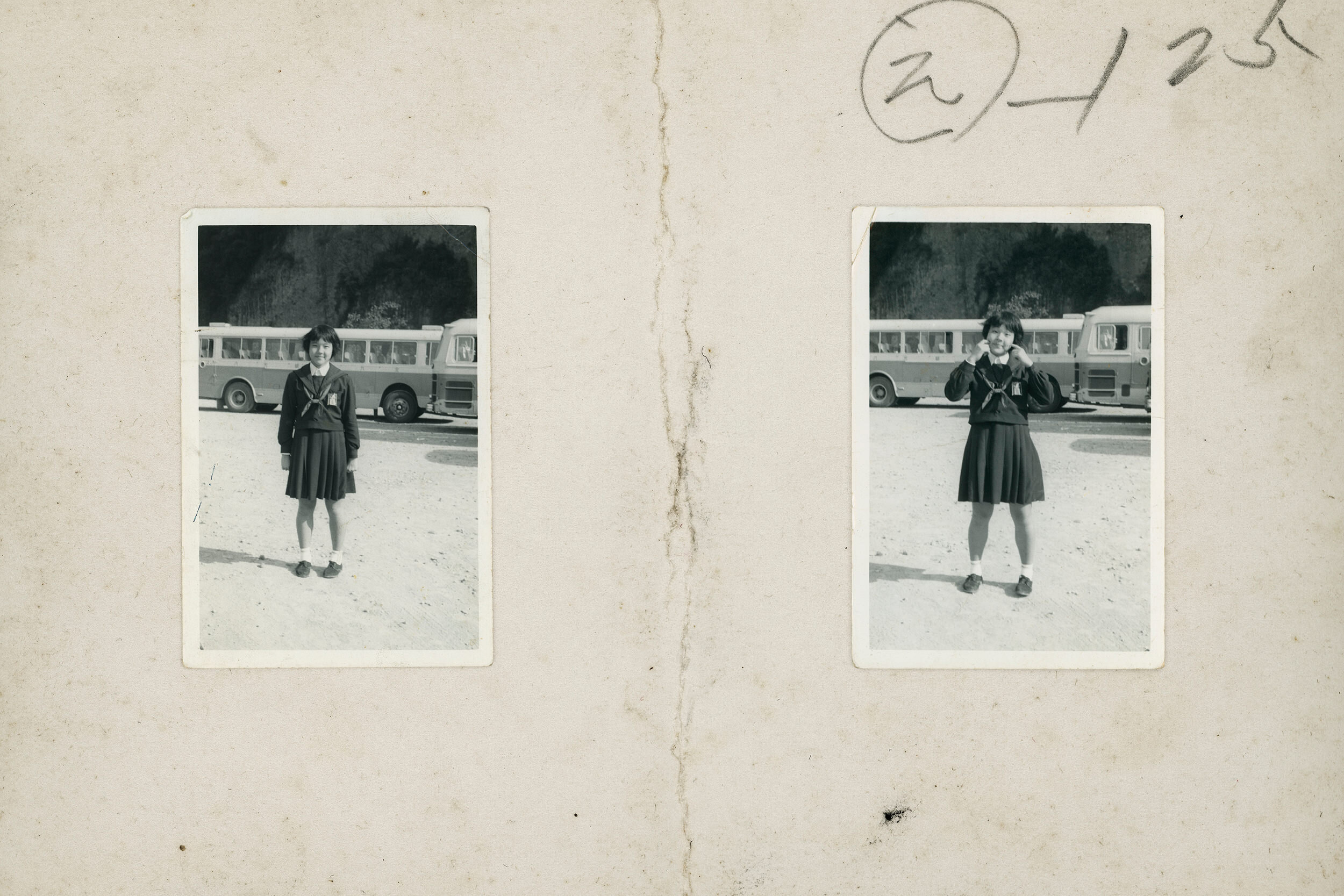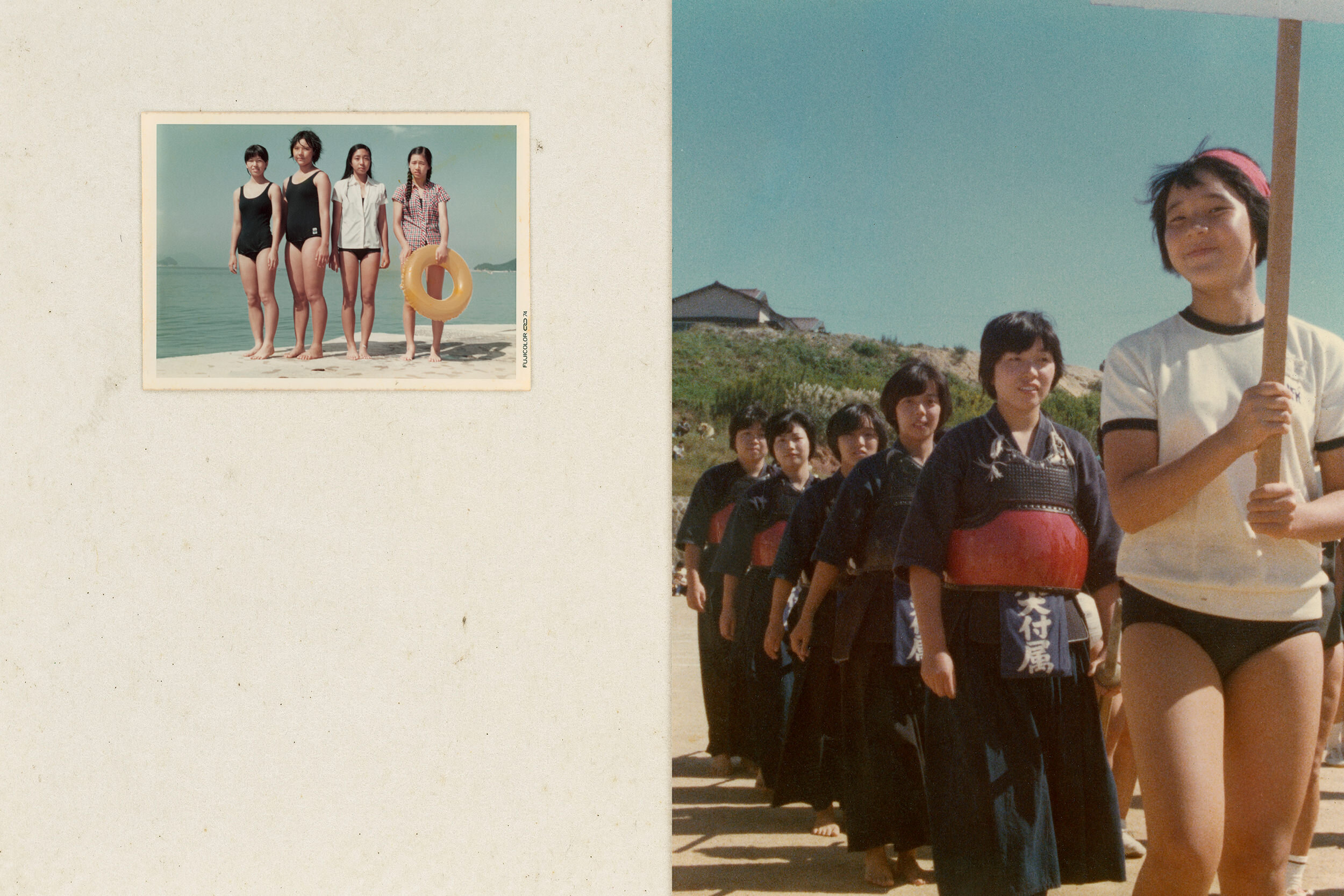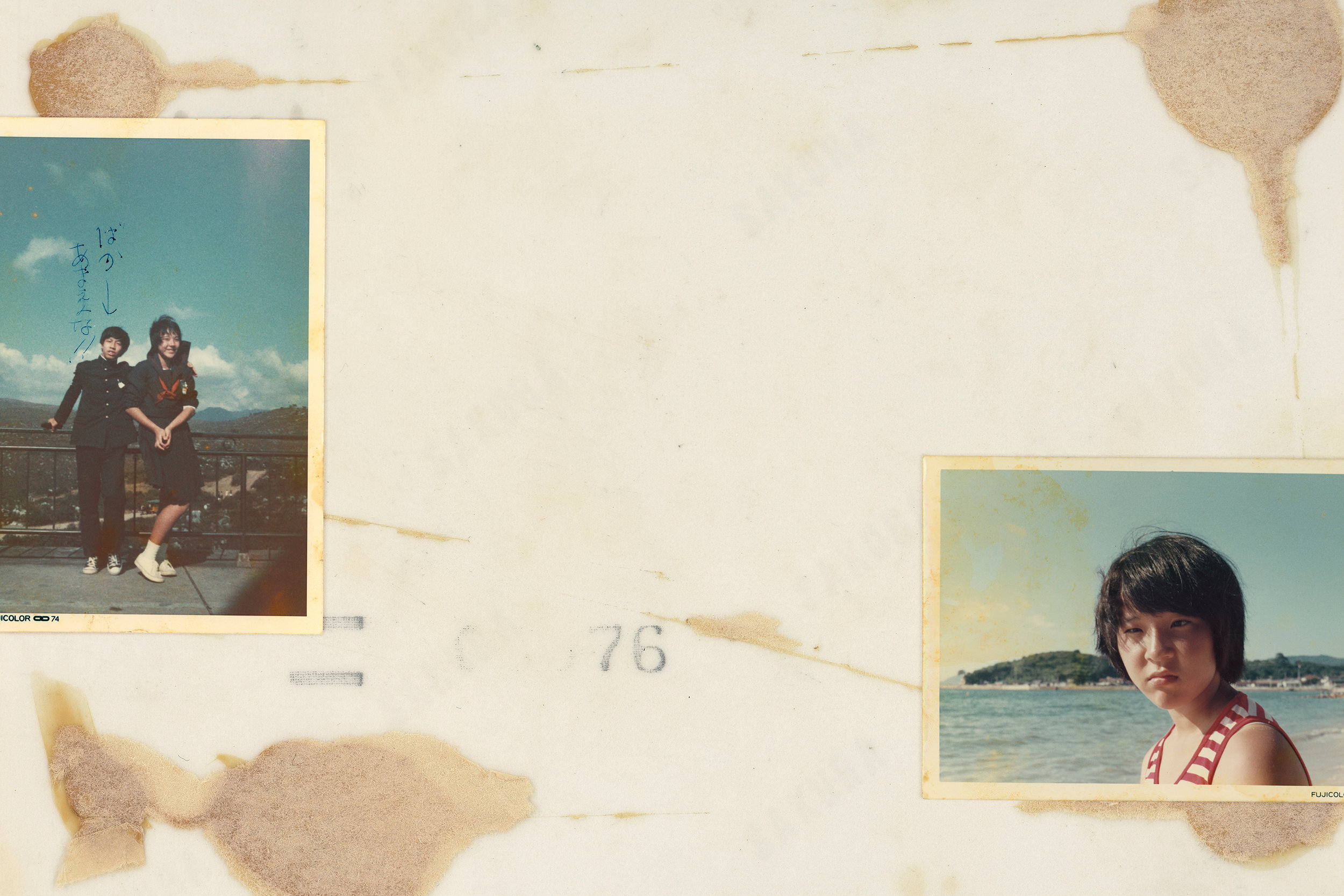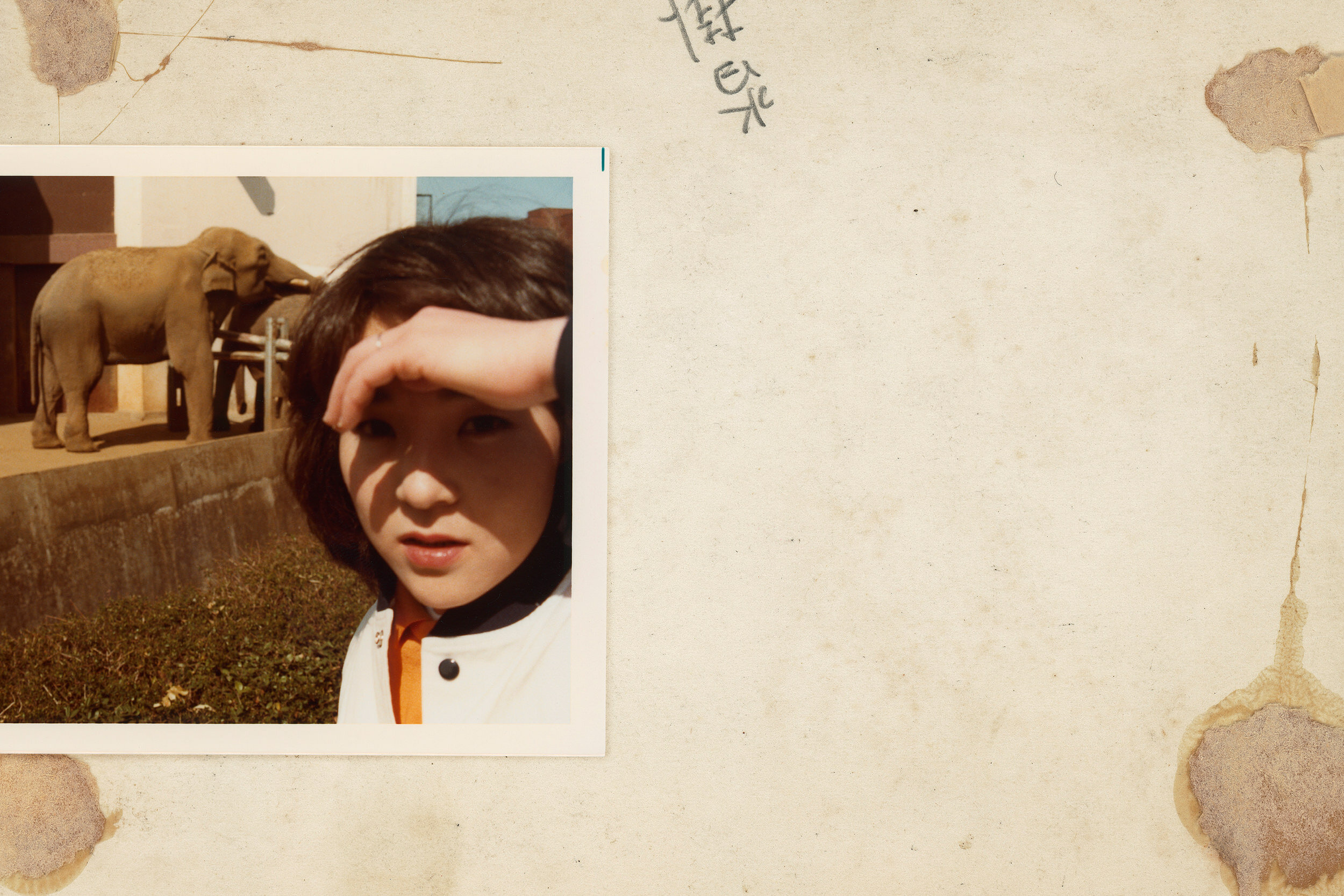Fumiko
by Sayuri Ichida
Fumiko is my mother.
Today, she is the person that I want to photograph the most.
Because that is not possible, I made this work to serve as a composite portrait of her as seen through the memories she left behind.
I was 20 and my mom was 47 when she passed away. She was a smoker and she died from lung cancer. When I learned that she was ill, I looked back and realized that she was constantly coughing. Even though she had been fighting with cancer for several years, I was not prepared for her death, I refused to acknowledge reality.
I blamed myself after her death because I didn’t go back home and spend time with my family on New Year’s day only three months before she passed. I chose to stay in Tokyo with my friends, because that somehow made it easier for me to believe that my mom would be OK.When she started slipping in and out of consciousness towards the end of her illness, one day she suddenly said in her bed, as if she had just remembered: “can we eat Japanese pancakes for tonight’s dinner?”
It looked like she herself also didn’t seem to understand that her own death was approaching.
It’s been more than ten years already. And in all these years whenever I dreamt about her, she looked sad and empty. Did the impact of witnessing my mom’s death wash away all my other memories of her? Was she always so sad and empty?
When she was healthy, she was always very self critical and uncertain about herself, but when she was fighting against her illness, she seemed confident and determined to win. When she lost all of her hair from radiation therapy and wore a wig for the first time, she made fun of herself and laughed very hard, even though my father, sister and I were all very concerned about how it might affect her. When she drove, she always played Chaka-kan and Whitney Houston. Every time she played these songs, my sister and I protested, but deep inside I was proud of her that she was listening to western music in a town so deep in the countryside as ours.
Early in 2017, my dad told me that our house was going to be demolished. The house was damaged by the 2007 Chuetsu-oki earthquake and it was never properly repaired since. I felt an emptiness inside me. My mom had been gone for ten years by this time, and now the house where I grew up was going to be demolished as well. In 2018 I went to where our house used to be and there was nothing but an empty lot that looked as if it had been there for years. There was only grass... And weeds moving with the wind.
A couple of years ago, I found an old metal cookie box in my parents’ old house, where they lived before they moved to Nigata. The box was full of images of my mom’s childhood and early adulthood, and many images of the early years of my parents’ relationship both before and after they got married.
Fumiko is my mother. Today, she is the person that I want to photograph the most as a photographer. Because that is not possible, I made this work to serve as a composite portrait of her as seen through the memories she left behind.
Sayuri Ichida was born in Fukuoka, Japan in 1985.
complete artist statement
I was 20 and my mom was 47 when she passed away. She was a smoker and she died from lung cancer. When I learned that she was ill, I looked back and realized that she was constantly coughing. Even though she had been fighting with cancer for several years, I was not prepared for her death, I refused to acknowledge reality.
I blamed myself after her death because I didn’t go back home and spend time with my family on New Year’s day only three months before she passed. I chose to stay in Tokyo with my friends, because that somehow made it easier for me to believe that my mom would be OK.
When she started slipping in and out of consciousness towards the end of her illness, one day she suddenly said in her bed, as if she had just remembered: “can we eat Japanese pancakes for tonight’s dinner?”
It looked like she herself also didn’t seem to understand that her own death was approaching.
It’s been more than ten years already. And in all these years whenever I dreamt about her, she looked sad and empty. Did the impact of witnessing my mom’s death wash away all my other memories of her? Was she always so sad and empty?
When she was healthy, she was always very self critical and uncertain about herself, but when she was fighting against her illness, she seemed confident and determined to win. When she lost all of her hair from radiation therapy and wore a wig for the first time, she made fun of herself and laughed very hard, even though my father, sister and I were all very concerned about how it might affect her. When she drove, she always played Chaka-kan and Whitney Houston. Every time she played these songs, my sister and I protested, but deep inside I was proud of her that she was listening to western music in a town so deep in the countryside as ours.
Early in 2017, my dad told me that our house was going to be demolished. The house was damaged by the 2007 Chuetsu-oki earthquake and it was never properly repaired since. I felt an emptiness inside me. My mom had been gone for ten years by this time, and now the house where I grew up was going to be demolished as well. In 2018 I went to where our house used to be and there was nothing but an empty lot that looked as if it had been there for years. There was only grass... And weeds moving with the wind.
A couple of years ago, I found an old metal cookie box in my parents’ old house, where they lived before they moved to Nigata. The box was full of images of my mom’s childhood and early adulthood, and many images of the early years of my parents’ relationship both before and after they got married. Fumiko is my mother. Today, she is the person that I want to photograph the most as a photographer. Because that is not possible, I made this work to serve as a composite portrait of her as seen through the memories she left behind.
母が亡くなったのは私が二十歳になってすぐの三月の終わり頃であった。 47歳だった。 その年の正月、新潟の実家に帰らず東京で友人と過ごした自分を恨んだ。母はすでに闘病生活を数年続けていたのに も関わらず、私は母が亡くなるなんて少しも想像できていなかったのだ。病室ですでに意識が遠のいていた母がふと 思い出したように言った。「今日の夕飯はお好み焼きでいいかね?」 母自身も死が近づいていることをまるで把握 していないようだった。
あれから既に十年以上の時が経つ。
夢に出てくる母は決まっていつも虚ろげで悲しそうである。 母の死の衝撃は明るく元気だった頃の母の姿を私の 記憶から消し去ってしまったのだろうか。
母は喫煙者だった。そして母の死因は肺がんである。ガンの宣告を受けたと知って、初めて振り返ってみると妙な 咳をしていたことに気がついた。元気な時は泣き言が多かった母が闘病中は一度も弱音を吐かなかった。放射線治療 で髪が抜けて、初めてカツラを被った際に至っては私たち家族がデリケートな気持ちになっていたのにも関わらず、 母はおどけて見せてゲラゲラ笑っていた。
運転中の母は決まってChaka KhanかWhitney Houstonを聞いていた。同じ曲が流れる度に妹と私からクレームが 入った。ど田舎で洋楽を聞きながら運転する母親を私は密かにカッコいいと思っていた。
2017年の始めに、その年の夏に実家が取り壊されるとの知らせを父から聞いた。 2007年の中越沖地震の影響で脆 くなっていた家を大家が取り壊すことに決めたそうだ。 母もいなくなって自分の育った家も無くなるのかと思うと 空虚感に襲われた。 翌年、実家のあった場所に向かうと更地にされた土地が目に入った。まるで最初からそこには何もなかったかのよ うに雑草が微かに風に揺れていた。 数年前、父の実家にあった古びたビスケットの缶から母の古い写真を見つけた。今までに見たことのない母の幼少 期の写真や、結婚前の母の姿が写った写真たちがランダムに詰め込まれていた。 新しい母の表情を見たような気がした。
写真家として今一番撮影したい人物は母、文子だ。しかしそれは不可能なことである。母が残してくれた記憶を 辿ってこの本を通して彼女の人物像を描くことにした。


















